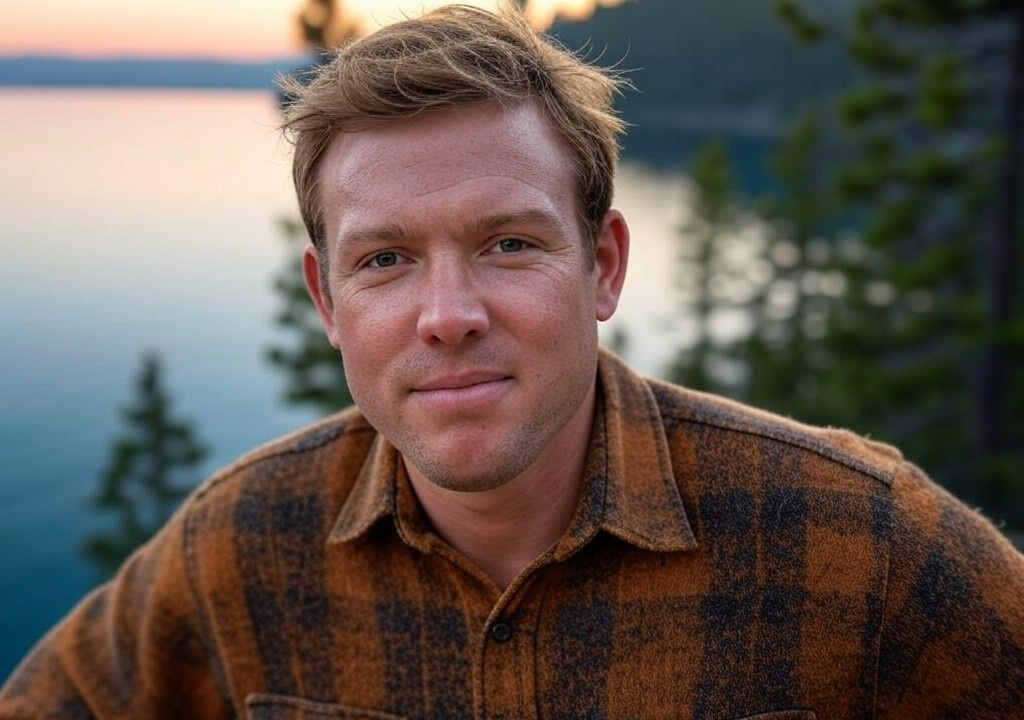Why do I write? If we’re being totally honest, sometimes I ask myself the same question—especially at 2 a.m. when I’ve got a half-empty coffee mug on my desk and my brain feels like an overcooked oatmeal cookie. And yet, I keep coming back. Writing is the one thing I can’t seem to quit. It’s my high school sweetheart, my summer fling, and, occasionally, my messy breakup all rolled into one. It’s not always easy, but it’s always worth it. Here’s why.
1. Words Are How I Make Sense of the World
Growing up in a cabin by Lake Tahoe, I was the weird kid walking around with a notebook instead of a fishing pole. My parents ran a lodge, and travelers would always stop to share stories about where they’d been and what they’d seen. Some tales were epic—itinerant climbers describing near-death scrambles on sheer granite faces. Others were mundane, like gripes about soggy trail mix. But all of them intrigued me.
As a kid, I wrote them down the way most people collect postcards or pressed flowers. Somewhere along the way, I realized that writing their stories—and my own—helped me make sense of life. Every sentence was a breadcrumb, a faint trail leading me toward being more honest and more human.
Nowadays, whether I’m writing about trees clinging to cliff faces or my own clumsy attempts at love (I once staged a lakeside picnic for a date and forgot to pack utensils—think peanut butter sandwiches eaten like pizza slices), writing helps me unravel the thread of life’s messy, beautiful chaos.
2. Writing Bridges People Together
Let’s face it—relationships can sometimes feel like hiking uphill without a map. You’re navigating assumptions, moods, and subtext, hoping you don’t trip over an emotional tree root. Writing, for me, is a way to share what I’ve learned on this rocky trail.
Take dating, for example. Early on, I treated relationships like a wilderness survival challenge. If I just planned enough, if I brought the perfect metaphorical pack of supplies, I’d be fine. Spoiler: life doesn’t work that way. One epic fail involved memorizing lines from Pablo Neruda’s poetry to impress a girl. When I recited them, she blinked and said, “That’s cute, but I don’t speak Spanish.” Communication: it’s a thing.
Later, it clicked for me that we’re all just trying to connect in whatever way we know how. Writing allows me to share these lessons—the ones where I succeed and the ones where I fall flat on my face—and hopefully help someone else along the way. People might not hike the same trails I do, but the struggles and small triumphs are universal.
3. Nature is My Muse...but So is Awkwardness
Most of my inspiration comes from nature’s quiet wisdom. Have you ever watched a tree grow on the edge of a cliff? It looks like it should fall over, but its roots are anchored deep in the cracks of the rock. That kind of resilience teaches you something. Love and life, I’ve found, are a lot like that: fragile and sturdy all at once.
But if nature is my muse, awkward human moments are my not-so-secret co-writer. I can’t count how many times I’ve found myself in situations that are mortifying in the moment but hilarious later. Like the time I accidentally told someone I loved them on date three because I panicked when we reached an “awkward silence” moment. (Pro tip: silence doesn’t require you to fill it with earth-shattering declarations.)
Writing lets me process those moments and grit in some humility. I remind myself, and others, that everyone stumbles. Heck, the most interesting stories usually begin with a stumble.
4. Writing is Self-Discovery, One Sentence at a Time
The thing about writing is that it’s both a mirror and a magnifying glass. When I put words on the page, I get to zoom in on what I actually think, feel, or believe—and that can be terrifying. Do I have it all figured out? Nope. Writing forces me to wrestle with my fears, my doubts, and occasionally my illogical love of discontinued hostess pastries (remember Suzy Q’s? Anyone?).
There’s something empowering about coming face-to-face with yourself in ink. It’s like stripping away the layers of societal expectations, bad first-date advice, and leftover teenage insecurities. Writing demands that I get real with myself, and in doing so, it helps me grow.
5. It’s My Most Reliable Compass
If I’ve learned anything in 30ish years of life, it’s that not all paths are linear. Some zigzag with no rhyme or reason—like trying to retrace your steps to where you parked the car after a long hike. Writing is my way of steadying the compass. Whenever I feel lost, I go back to the page. Whether it’s journaling about a breakup or drafting this article after my laptop ate the first version (RIP), writing reminds me to pause. It teaches me to dig deep, keep going, and pay attention to the details that might otherwise slip by.
The truth is, I don’t have all the answers in love, relationships, or even what I’ll be writing about next week. But the beauty of storytelling is knowing the process itself is the destination.
6. It’s About Connection, Not Perfection
One thing I’ve learned from nights spent sitting around campfires is this: no one’s looking for the perfect story. They’re looking for the real one. They want the laughs, the missteps, and yes, the feel-good moments when everything comes together (kind of like a good rom-com starring Sandra Bullock—it’s awkward, endearing, and a little too relatable).
Writing gives us permission to be beautifully imperfect. It’s my way of saying, “Hey, here’s what I’ve seen and felt, and maybe you’ve been here too.” That shared recognition—that’s why I keep at it. Because even when my words feel clunky or not quite enough, they might still help someone find a sliver of truth in their own lives. And that feels like magic.
Why I’ll Never Stop
In the end, writing isn’t just ink on a page or words on a screen. It’s the act of reaching across the vastness of the human experience and saying, “Me too.” It’s an art of connection, a labor of love, and, dare I say, the ultimate relationship. Sure, it frustrates me sometimes. Yes, there are moments when I’d rather binge-watch a ridiculous Netflix series than string words together. But writing, like any good companion, always calls me back—and I’m the better for answering.
So that’s why I write. And if you’ve ever felt unsure of your own story—or your ability to tell it—let me leave you with this: perfection isn’t the point. Share what you know, spill the mess, and don’t overthink it. Somewhere, someone will recognize themselves in your words. I promise it’ll be worth it.
Now, if you’ll excuse me, there’s a notebook calling my name and a badly brewed cup of tea that isn’t going to drink itself.




















